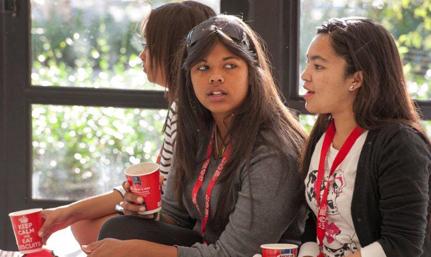|
 |
Photo: Sonia Small
05 April 2013 |
About 250 learners from 55 schools in the country arrived on Thursday 4 April 2013 at the various residences on our Bloemfontein-Campus where they will be staying during the three day summit. During the summit, learners and facilitators discussed the connection between emotional intelligence, leadership, self-leadership, development and communication with conflict resolution in mind.
The summit, which was attended by top leaders from schools, is already hosted for the third consecutive year. Schools are invited months before the time to send representatives to the summit.
These were the impressions of the learners after the first day:
“Today was very nice and interesting. We learnt how not to limit or degrade yourself. “ – Sané Pretorius, Ficksburg High School.
“We can apply the methods we learnt here today to become better leaders both in our schools and community.” – Onkarabile Marumo, Eunice High School
“It was a long and interesting day.” – Johan Barnard, Staatspresident Swart High School
“It is definitely a worthwhile experience for any aspiring young leader.” Shaheen Karodia, Muir College